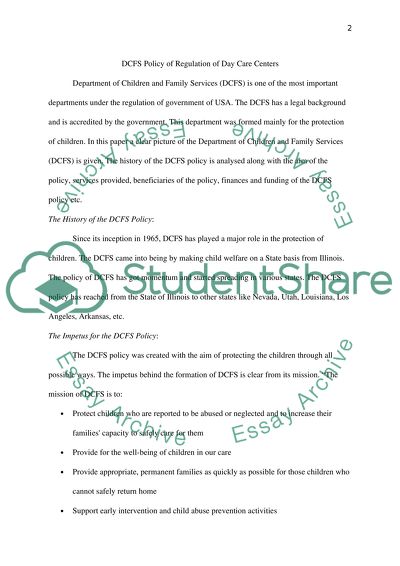Cite this document
(“DCFS Policy of Regulation of Day Care Centers Research Paper”, n.d.)
Retrieved from https://studentshare.org/family-consumer-science/1432711-dcfs-policy-of-regulation-of-day-care-centers
Retrieved from https://studentshare.org/family-consumer-science/1432711-dcfs-policy-of-regulation-of-day-care-centers
(DCFS Policy of Regulation of Day Care Centers Research Paper)
https://studentshare.org/family-consumer-science/1432711-dcfs-policy-of-regulation-of-day-care-centers.
https://studentshare.org/family-consumer-science/1432711-dcfs-policy-of-regulation-of-day-care-centers.
“DCFS Policy of Regulation of Day Care Centers Research Paper”, n.d. https://studentshare.org/family-consumer-science/1432711-dcfs-policy-of-regulation-of-day-care-centers.


